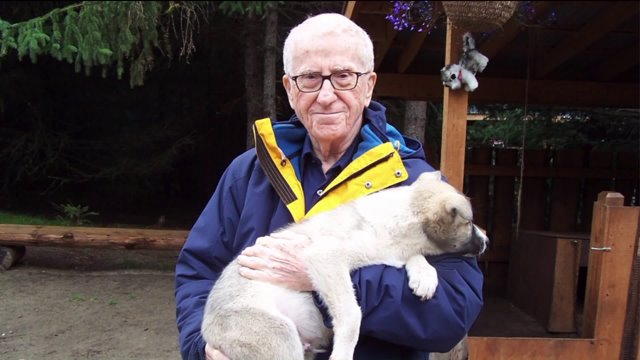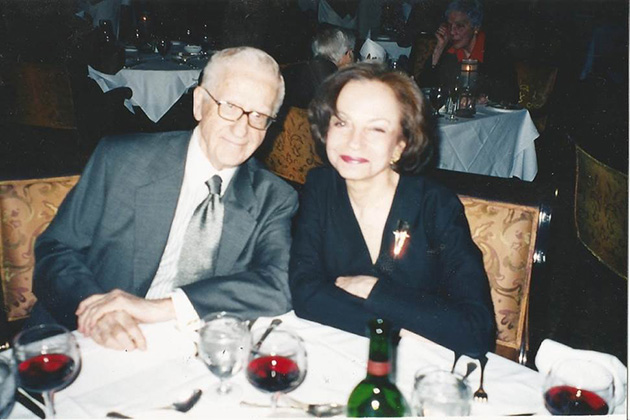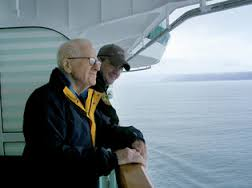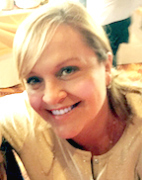 Photos courtesy of Pam Chanko
Photos courtesy of Pam Chanko
In April 2011, Pamela Chanko’s parents, Mark and Anita, returned from a trip to an empty fridge. Her father ran to the store for bananas and milk. While crossing a Manhattan street, he was hit by a garbage truck. He sustained massive injuries.
At NewYork-Presbyterian Hospital, Pamela, her mother and siblings waited outside the operating room for news of Mark’s condition. The family was not allowed to see Mark during what would turn out to be his final moments.
Mark Chanko did not survive.
When Pamela first learned of her father’s death, she envisioned him under anesthesia, unaware, out of pain. In fact, Mark Chanko was conscious and suffering. Pamela and her family would come to learn these difficult facts via the least dignified manner possible — reality television.
A Death Observed
Fast forward 16 months. Pamela’s mother, Anita, turned on the DVR to watch an episode of NY Med, a reality medical series featuring Dr. Mehmet Oz. Anita recognized Dr. Sebastian Schubl on the screen, the same doctor who had treated Mark and had broken the news of Mark’s death to her and her children.
A few moments into the show, Anita suddenly heard her husband’s voice: “Did anyone speak to my wife?”
Mark’s face was blurred, but it was indisputable. She was witnessing her husband’s last moments on the television screen. Then Anita heard the doctors pronounce her husband dead.
Unbeknownst to his family, Mark Chanko died surrounded not just by medical staff, but by a television crew. No one, neither Mark nor anyone in his family, had consented to the filming.
Then, as if the shock of watching her husband die on television weren’t enough, Anita Chanko heard Dr. Schubl as he informed her and her children of Mark’s death.
“I did everything I possibly could ....” Dr. Schubl was wearing a microphone. The NY Med crew was secretly recording from behind a closed door.

Mark and Anita Chanko
Seeking Justice
Anita told her children what she had seen. They were dismayed.
“The question we asked each other over and over was, ’How could this possibly be OK?’” Pamela recounted. “We were horrified and angry — there was no question that we had to do something about it.”
Pamela’s brother, Ken Chanko, took action, filing a complaint with the U.S. Department of Health & Human Services, Office for Civil Rights.
A reasonable consumer would expect not to be filmed during a medical procedure without consent under the Health Insurance Portability and Accountability Act (HIPAA).
Enacted in 1996, HIPAA is a federal patient privacy law that insures that no one has access to patients’ health information without authorization.
The HIPAA form is the extra form you sign at the doctor's office. HIPAA is also the reason the pharmacist shoos you away if you’re standing too close in line to the person ahead of you.
HIPAA has evolved since its inception. It addressed media issues in 2001, although the rules were unclear.
The American Medical Association website reads, “Educating the public about the health care system should be encouraged, and filming of patients may be one way to accomplish this. This educational objective can be achieved ethically by filming only patients who can consent.”(5)
The Office for Civil Rights which oversees HIPAA commented on the Chankos’ experience in the New York Times. “This case sends an important message that O.C.R. will not permit covered entities to compromise their patients’ privacy by allowing news or television crews to film the patients without their authorization.”(2)
The complaint to the OCR resulted in NewYork-Presbyterian Hospital having to pay a $2.2M fine to federal regulators for violating HIPAA laws, a finding that made international news.(2)
The hospital has also agreed to train staff and update their privacy policies. The government will monitor NewYork-Presbyterian’s compliance for the next two years.(2)

Mark Chanko with his son Ken
Looking Forward
The Chankos also filed a civil suit against the hospital, the doctors, and ABC for breach of patient-doctor confidentiality. The suit was originally dismissed by an appellate court.
The family appealed, and the highest court in New York State decided that the suit could go forward against the hospital and doctor, but not against ABC.
The Chanko family’s civil suit is ongoing. The family is also fighting for legislation in New York State that would make it illegal to film patients without their consent.
“The way that my father was taken, so suddenly, so violently — that is a very specific kind of grief,” Pamela said. “Then to have it televised — you can imagine. It complicates and prolongs our grief. My father died over five years ago, and our fight for justice has been going on for almost four of those years.”(1)
Of course, the Chanko family wishes Mark’s death had never been recorded or televised. But since it was, they hope that their experience gives birth to solid, clear legislation that ensures that no patient is ever exploited again.
Their efforts are beginning to bear fruit. In 2015, The Greater New York Hospital Association asked the hospitals it represents in New York City to stop filming patients for entertainment purposes without their consent. (7)
Legislation was also introduced that would make it a felony in New York to film patients receiving medical treatment without their consent. (6)The courts have since reduced the penalty to a misdemeanor and basis for civil action.(1)
Pamela shared that NY Med left her with images and sounds of her father’s suffering she can never erase. She wishes she could have been present holding her father’s hand, and wonders why a television crew of strangers had access to his final moments when she didn’t.
“We want the results of this battle — making sure that it never happens again — to be my father’s legacy. He would be proud of what we’re doing, and that’s what keeps us going.”
Reviewed June 2, 2016
by Michele Blacksberg RN
Edited by Jody Smith
1) Email interview with Pamela Chanko. May 25, 2016.
2) New York Hospital to Pay $2.2 Million Over Unauthorized Filming of 2 Patients. NYTimes.com. Retrieved May 27, 2016.
http://www.nytimes.com/2016/04/22/nyregion/new-york-hospital-to-pay-fine-over-unauthorized-filming-of-2-patients.html?_r=0
3) Loved ones dying on TV, without consent: New York needs laws that prevent filming in hospitals without patients' permission. NYDailyNews.com. Retrieved May 27, 2016.
http://www.nydailynews.com/opinion/pamela-chanko-loved-dying-tv-consent-article-1.2578097
4) Health Information Privacy. HHS.gov. Retrieved May 27, 2016.
http://www.hhs.gov/hipaa/for-professionals/faq/2023/film-and-media/index.html
5) Opinion 5.045 - Filming Patients in Health Care Settings AMA-ASSN.org. Retrieved May 29, 2016.
http://www.ama-assn.org/ama/pub/physician-resources/medical-ethics/code-medical-ethics/opinion5045.page?
6) New York Legislation Would Make It a Felony to Film Patients Without Prior Consent. Pro-Publica.org. Retrieved May 29, 2016.
https://www.propublica.org/article/new-york-legislation-would-make-it-felony-to-film-patients-without-consent
7) New York City Hospitals to End Filming Without Consent. ProPublica.org. Retrieved June 1, 2016.
https://www.propublica.org/article/new-york-city-hospitals-to-end-filming-without-consent





Add a CommentComments
There are no comments yet. Be the first one and get the conversation started!